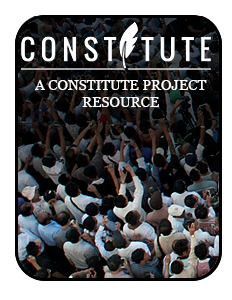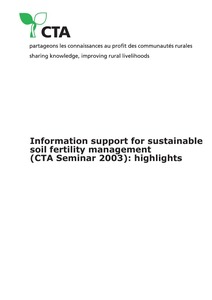The draft of the constitution was vetted by the people at Tinkhundla and Sibaya meetings before being approved by Parliament and signed by the President.
‘Poor soils make poor people, and poor people make soils worse’. This is a situation that can be seen in many ACP countries. What information support can be offered...
This paper reports on a form of multi-criteria analysis that provides a formal approach for evaluating the suitability of a wetland for specific agricultural uses, and ensures that explicit consideration is given to the possible consequences of such utilization. The method is based on a hybrid…
Les évaluations des bilans en éléments nutritifs aident à déterminer les effets des pratiques agricoles sur la fertilité des sols. Selon les situations, plusieurs approches et méthodes ont été utilisées. Ce bulletin présente un apercu de la situation actuelle des études des bilans en elements…
The IPTRID programme is a multi-donor trust fund managed by the IPTRID Secretariat as a Special Programme of FAO. The Secretariat is located in the Land and Water Development Division of FAO and draws on a worldwide network of leading centres of excellence in the field of irrigation, drainage…
In this report, the COHRE Women and Housing Rights Programme (WHRP) documents the fact that under both statutory and customary law, the overwhelming majority of women in sub-Saharan Africa (regardless of their marital status) cannot own or inherit land, housing and other property in their own…
The report summarises the papers, presentations and discussions of a workshop on failures and achievements at securing women’s land rights. In particular, it addresses the following issues: Land rights and legal reforms,legal aid and land administration practice, women's land rights in an…
In the first part of this paper the role of the core principles in three different scenarios will be discussed. The first is a setting where a shared watercourse, but no specific treaty exists; the second, where a treaty is in the process of being negotiated; and the third where an…
La présente loi autorise la ratification de la réglementation commune aux Etats membres du CILSS sur l’homologation des pesticides, révisée et adoptée par le Conseil des Ministres du CILSS, le 16 décembre 1999 à N’Djaména (Tchad), dont le but est de mettre en commun (dans un cadre sous-régional…
Meeting Name: Regional Conference for Africa (ARC) (22nd Session)
Meeting symbol/code: ARC 02 INF/7






